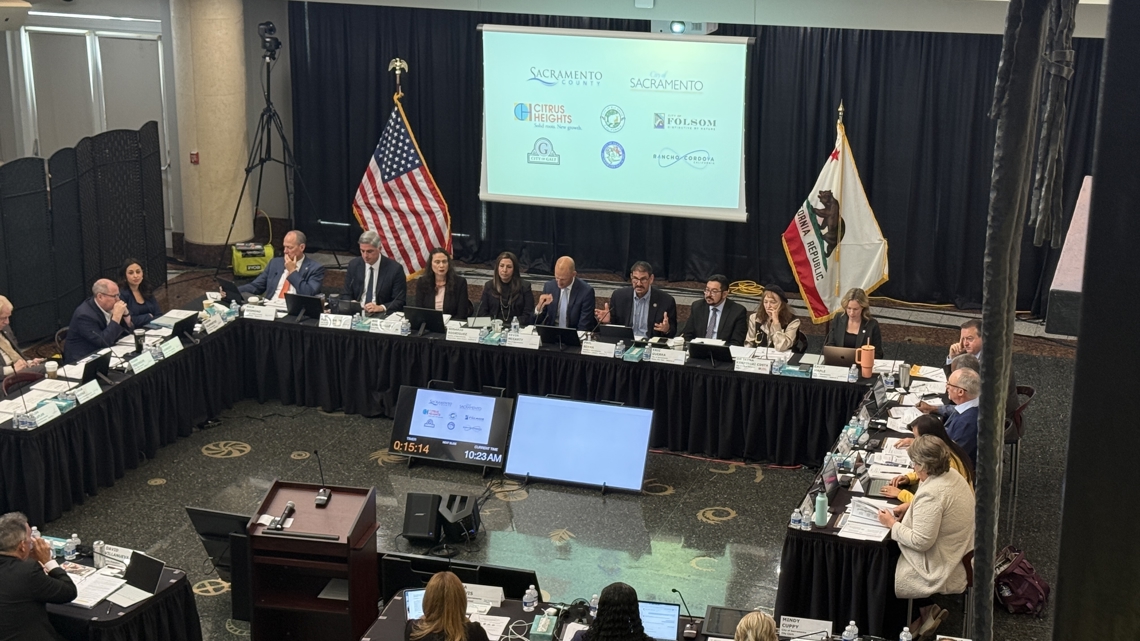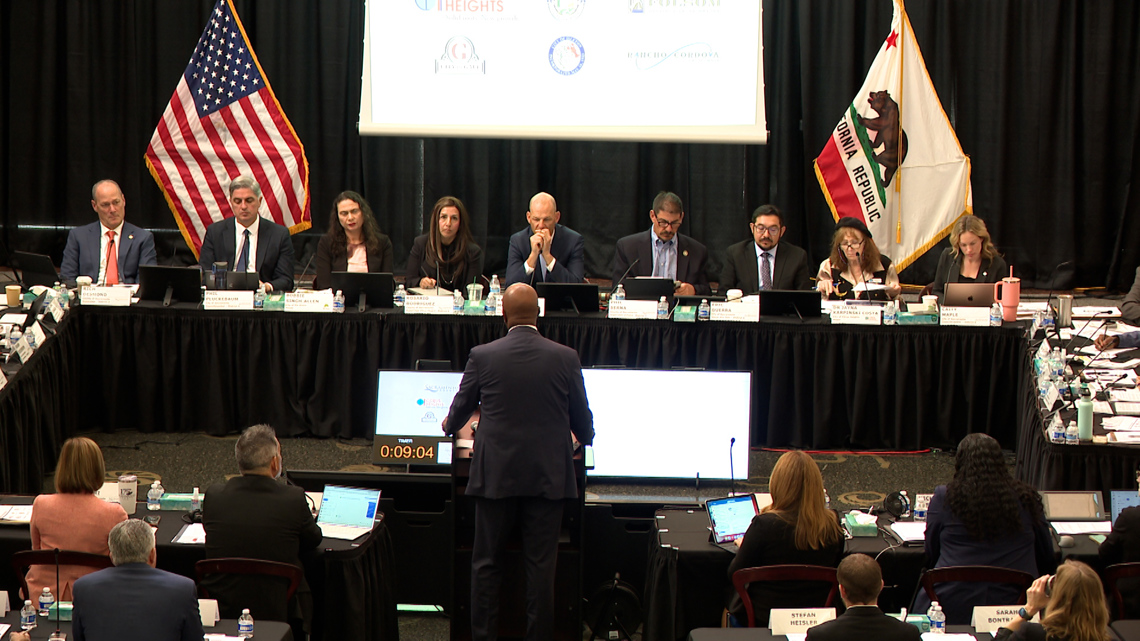Leaders from Sacramento County and six nearby cities met for a first-ever joint meeting on homelessness, aiming to strengthen coordination and close service gaps.
SACRAMENTO, Calif — Leaders from Sacramento and six nearby cities met Tuesday for the first time to confront the region’s worsening homelessness crisis — a rare show of collaboration that quickly turned into a call for accountability and data transparency.
Twenty elected officials, county and city leaders plus service providers gathered at the Tsakopoulos Library Galleria, representing Sacramento County and City, as well as Citrus Heights, Elk Grove, Folsom, Galt and Rancho Cordova. The group sought common ground as encampments continue to spread across city lines.
“Today we’re not going to have one magic solution to solving homelessness,” Sacramento Mayor Kevin McCarty said. “It took us many, many years to get where we are today. It’s going to take us a while to work on this together.”


There were four presentations on: Progress and Possibilities in Addressing Homelessness; Behavioral Health Engagement Strategies and Legal Pathways to Treatment; Federal and State Impacts on SafetyNet Programs; and a Countywide Visioning Session, followed by public comment.
Concerning data was presented by Sacramento County Sheriff Jim Cooper, who delivered some of the meeting’s most direct remarks, saying meaningful progress won’t happen until law enforcement has a seat at the table and agencies share data.
“Just the stats and information — they didn’t want to share with us,” Cooper said. “It was siloed, and really, we’re a part of it. Most of the organizations that are involved in homelessness work Monday through Friday, weekends and holidays off. They’re not out there 24/7, which we are. We see it.”


Cooper shared new data illustrating the scope of homelessness in unincorporated Sacramento County over 33 months (not including Rancho Cordova). Over nearly three years, he reported his office received 19,879 citizen complaints related to homelessness and cleared more than 4 million pounds of trash from encampments. Deputies issued 2,240 citations and made 2,578 arrests — including more than 1,100 people with violent criminal histories.
The report also detailed 7,196 domestic-violence incidents, 2,045 sexual-assault reports and nearly 1,000 individuals flagged for mental-health concerns. Despite outreach, only about 14% of unhoused individuals accepted or had already accepted help, Cooper said.
He described the findings as a wake-up call for policymakers and service providers. “They have no idea what law enforcement’s part is in this,” he said. “They really don’t know, and I’m not blaming them, but they have no idea.”
Fire officials echoed similar frustrations, noting the toll homelessness takes on first responders.
“The heavy utilization of 911 resources constrains emergency response capacity, impacting response times for other critical incidents,” Kyle MacDonald with the Sacramento Metropolitan Fire District said. “No single agency or entity can resolve this alone. Solutions depend on shared strategies and sustained communication.”
Lisa Bates, CEO of Sacramento Steps Forward, said the meeting represented a starting point for broader regional coordination.
“Our goal is simple — to make homelessness rare, brief and non-recurring,” Bates said.
McCarty acknowledged the long road ahead but said the meeting marked a necessary first step. Advocates said the real test will be what happens next — outside the meeting room.
WATCH MORE ON ABC10 | Sacramento mayor Kevin McCarty unveils 6-point plan to tackle Sacramento homelessness
ABC10: Watch, Download, Read

